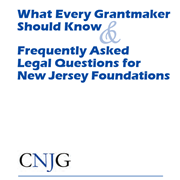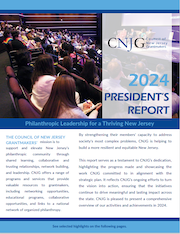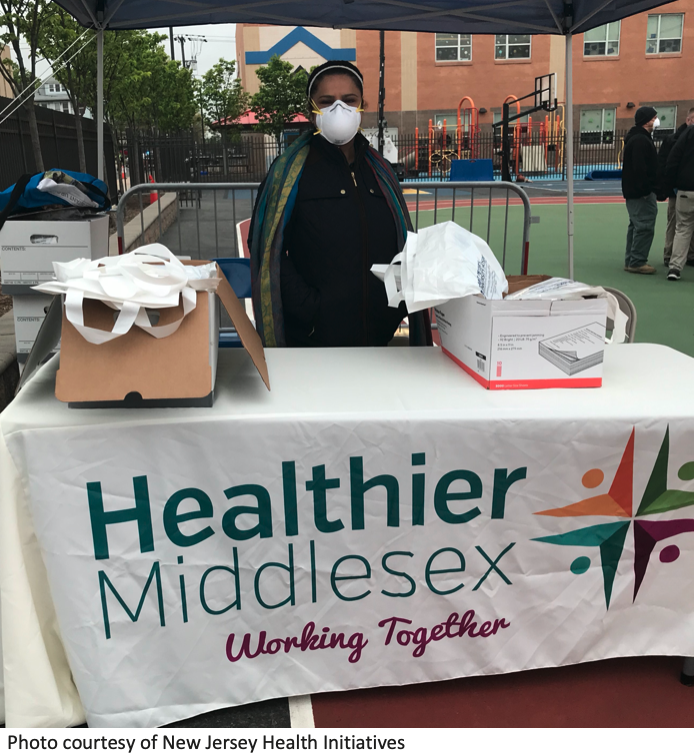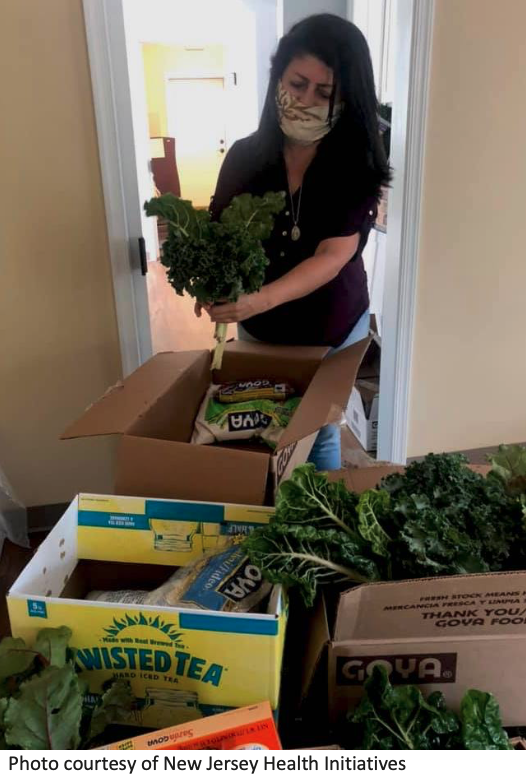Site Search
- resource provided by the Forum Network Knowledgebase.
Search Tip: Search with " " to find exact matches.
This weekly conference call series welcomed New Jersey-based grantmakers along with national funders and provided an opportunity for grantmakers to hear from a wide range of experts in the field of disaster philanthropy. Series 1 started on November 5, 2012, one week after Sandy struck New Jersey, and continued through March 25, 2013. Series 2 started on September 9, 2013 and concluded on November 4, 2013. The written compendium of the recordings is listed below.
These news articles show our members’ responses to the coronavirus pandemic, including announcements, emails, blogs, grants and other resources. If you have items to add, please email us.
Actions and Announcements
Audible Creates Global Center for Urban Development and Hires Aisha Glover to Help Lead It
Russell Berrie Foundation Post: Our Response to COVID-19
Campbell Soup to pay hourly employees premium during outbreak
Post: Our Response to COVID-19
Geraldine R. Dodge Foundation
Dodge signs CoF pledge
Grunin Foundation 3/13 COVID-19 Announcement and 3/31 COVID-19 Update
Johnson & Johnson’s lead COVID-19 vaccine candidate shots for early 2021 authorization
Robert Wood Johnson Foundation
Culture of Health Blog: Handwashing to Slow the Coronavirus Pandemic
Opinion: Racism is the other virus sweeping America during this pandemic by Julie Morita, M.D
Opinion: Disabled Americans can’t be a COVID-19 afterthought by Dr. Richard Besser
Culture of Health Blog: Incarceration Rates: A Key Measure of Health in America
Opinion: In Covid-19 Crisis, Philanthropy’s Attention Must Focus on People With Disabilities
Brief: Health Equity Principles for State and Local Leaders in Responding, Reopening & Recovering from COVID-19
Culture of Health Blog: Lessons for an Equitable COVID-19 Response and Recovery
Kessler Foundation has produced two COVID related podcasts:
Practical Tips to Help Survive the Pandemic as a Parent of a Child with Autism
COVID-19 and Spinal Cord Injury: Minimizing Risks for Complications
New Jersey Council of Humanities Op-ed: Staying Human During the Pandemic
New Jersey Health Initiatives’ Deputy Director of Programs, and CNJG Board Member Diane Hagerman penned “Collaboration across county lines is key to a healthy New Jersey” on NJ Spotlight.
New Jersey Council for the Humanities and New Jersey Historical Commission present a webinar series for cultural nonprofits navigating the COVID-19 pandemic
New Jersey Economic Development Authority assists more than 10,000 small businesses impacted by COVID-19
New Jersey State Council on the Arts partners with ArtPride New Jersey Foundation on “Keep Jersey Arts Alive” campaign.
Newark Arts and the City of Newark Retools Its Ambitious Arts Grant Program to Respond to COVID-19
Nicholson Foundation Email to Grantees
Nicholson honors their own Colette Lamothe-Galette, lost to COVID-19
OceanFirst Foundation and Grunin Foundation along with Townsquare Media Launch Acts of Kindness Campaign
Subaru teams up with TerraCycle on PPE recycling
Turrell Fund Email to Grantees about CARES Act
Turrell Fund manages new Passaic County Pandemic Partnership hosted at the Community Foundation of New Jersey
United Way of Greater Mercer County Op-ed message from Sandra Toussaint
Valley National Bank offers Community Pledge CD to help donate and save at the same time
Resources
New Jersey State Council on the Arts Resources for Artists and Arts Organizations
Video: Hear from recognizable native New Jersey voices about the importance of donating to the New Jersey Pandemic Relief Fund
Nonprofit Finance Fund's Annual Survey chronicles the challenges facing the nonprofit sector and calls out some of the targeted investments we can start to agree on as a society to salvage the investment we have collectively made in our social infrastructure. We believe that a coordinated intervention now will not only better prepare us for inevitable future economic crises; it can lead to a happier, healthier community for us all.
A working glossary of terms to help shape a common language for work in Community Capacity. This glossary is intended to help promote philanthropy's roles in building community capacity by defining core concepts and closely related terms.

This guide was designed to help the state’s philanthropic community understand their ethical, legal, and fiduciary requirements and obligations.
A CNJG corporate member asked for help with the scenario in which a corporate policy of not supporting religious organizations in their grantmaking, causes problems helping during a disaster in an urban or rural area, when the program that is delivering the disaster relief is based within a church. They want to work with those programs (a church serves as the program’s fiscal sponsor) who support efforts for hunger, homelessness, substance abuse recovery, racial equity, etc. as long as they do not discriminate and do no limit it to their own congregations. The request for policy samples to work around this religious organization hurdle as long as there is no discrimination or funding the actual church’s worship, was compelled by CNJG staff and is listed here.
Food is essential. But how often do you consider where your food comes from?This issue of What Funders Need to Know from the Washington Regional Association of Grantmakers explores the stages of the food system, from production all the way to disposal. Why is this important to philanthropy?
Because hunger, food insecurity, nutrition-related chronic disease, the health of resource lands and waterways, wages, and equal opportunity in the food economy all converge in our regional food system.
The Ford Institute for Community Building, a program of The Ford Family Foundation, works to help community leaders learn how to implement local solutions based on principles of effective community building. This paper describes the development and work of the The Ford Institute for Community Building.

CNJG's President's Reports
This paper explores community democracy as a cultural choice and a potential organizing system for philanthropy using stories that demonstrate its principles and practices, primarily growing from the experience of northern California communities. This experience offers a framework of principles and a beginning set of conclusions about how philanthropy can develop productive partnerships from the perspective of a place-based, community democracy.
What are the biggest needs and challenges New Jersey communities face as result of the pandemic?
- It starts with the basics: food and shelter, medical equipment such as masks for long-term care facilities, and digital access for remote education and medical screenings. For many immigrants and the undocumented community, this challenge is even greater.
- Parents of school-age children need support in navigating remote education and childcare challenges -- and balancing them with employment needs.
- People who’ve lost their jobs need to know how to find the right support services, and those services need to be accessible -- no technology or language barriers.
- Schools are having to re-imagine how they can open in the fall – if they can – with appropriate social distancing that requires changes to infrastructure and schedules.
- Organizations need support to retrofit their public spaces so they can serve the public safely.
How is CNJG leading efforts to prepare the philanthropic sector for an effective response?
- CNJG helped create the Disaster Philanthropy Playbook after Superstorm Sandy in 2012 and uses many of the lessons learned then to inform response and recovery plans for COVID.
- Almost immediately, CNJG began providing funder briefings, webinars, and other forms of information to the philanthropic community.
- With our members, CNJG created the COVID-19 Funder Learning Community for the numerous response funds that are serving New Jersey was established to:
- Get timely updates on the latest pandemic developments
- Share information about what services and help are needed most -- and where
- Explore potential strategies for effective grantmaking that matches resources to needs and avoids duplication
- Learn best practices from each other
How is the pandemic affecting New Jersey nonprofits?
- The COVID-19 crisis is having a significant and alarming financial and programmatic impact on the nonprofits relied on to care for those in need. According to the Center for Non-Profits Rapid Response Survey:
- 83% cancelled programs or events and correspondingly lost revenue
- 77% have budgetary implications related to strains on the economy
- 52% have increased demands for services
- 40% experienced a disruption in supplies or services provided by partners
- 37% have an increase in or sustained absences of staff and volunteers
- 31% have had layoffs or furloughs
- Many nonprofits lack the digital infrastructure needed to employees’ and volunteers’ sudden switch to remote work and many volunteers who do important work are no longer available.
How is New Jersey’s philanthropic sector responding to the needs of nonprofits and the people they serve?
- Many funders have streamlined the grantmaking process so nonprofits can either refocus grants or receive new funding expeditiously to provide immediate relief for those facing the most pressing situations.
- Many funders are reducing what they ask of nonprofit partners – for instance postponing reporting requirements, deferring site visits, and eliminating other demands on their time so they can focus efforts during this challenging time.
- Some are providing low- or no-interest loans or outright grants to small businesses and nonprofits to retrofit their facilities to keep essential workers and the people they serve safe.
- Several community foundations and other nonprofits have established NJ COVID-19 relief funds that make it safe and convenient for donors to give, and that direct resources to where they are needed most.
- The sector is committed to grounding its work in the Center for Disaster Philanthropy's key principles of grantmaking:
- Resilience, to improve communities holistically and make them stronger than before a disaster.
- Equity, to take historical injustices into account and inform investments.
- Sustainability, to take into account a long-term view and factor in uncertainty.
- Civic participation that equips and empowers those often left out to influence what happens in their communities.
How is CNJG responding to longstanding equity issues that the pandemic exposes and makes worse?
- Together with the Center for Non-profits in New Jersey, we put out a statement on behalf of the state’s philanthropic and nonprofit sectors, urging everyone to speak out against racism and discrimination in all forms.
- CNJG established a Racial Equity Task Force to eliminate any structural racism in New Jersey’s philanthropic community.
- Most of the larger COVID funds engaged community-based practitioners to assist in decision-making on grant awards, and CNJG is creating a local advisory group for the Learning Community.
What steps are being taken to make sure grants aren’t duplicative and that money is going where it’s needed most?
- CNJG encourages the philanthropic sector to use a shared mapping tool that shows how much money is being awarded and where. This tool helps grantmakers make informed decisions and helps to eliminate gaps in historically under-funded communities.
- The COVID-19 Funder Learning Community is a vehicle for building relationships and sharing information about what each funds is doing to support relief and recovery across the state.
What’s the best way for people to donate money for relief and recovery?
You can find a list of these New Jersey Relief and Recovery funds and their contact info here.


